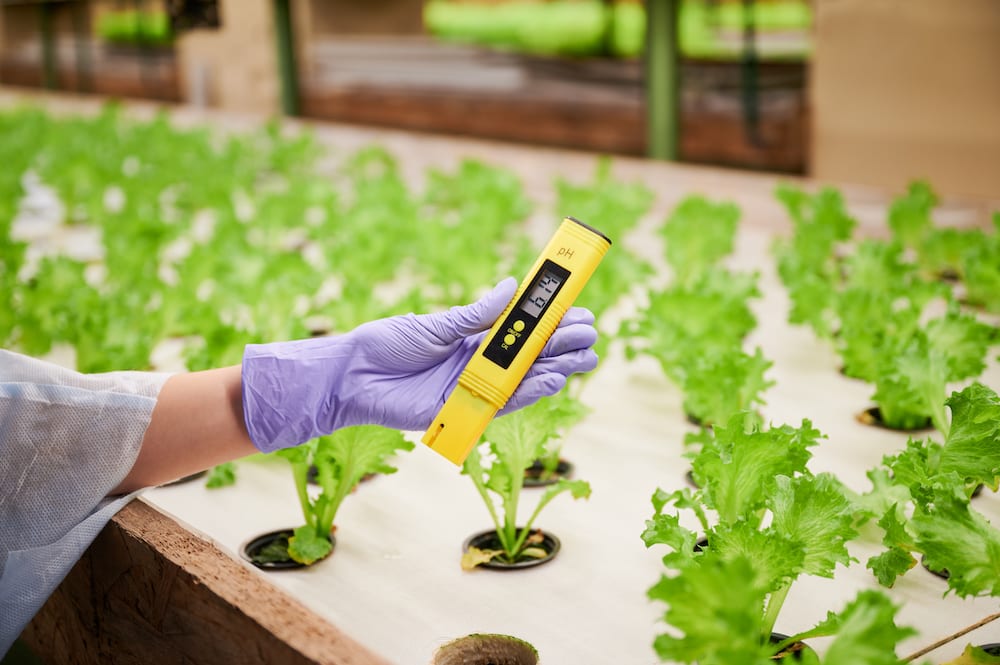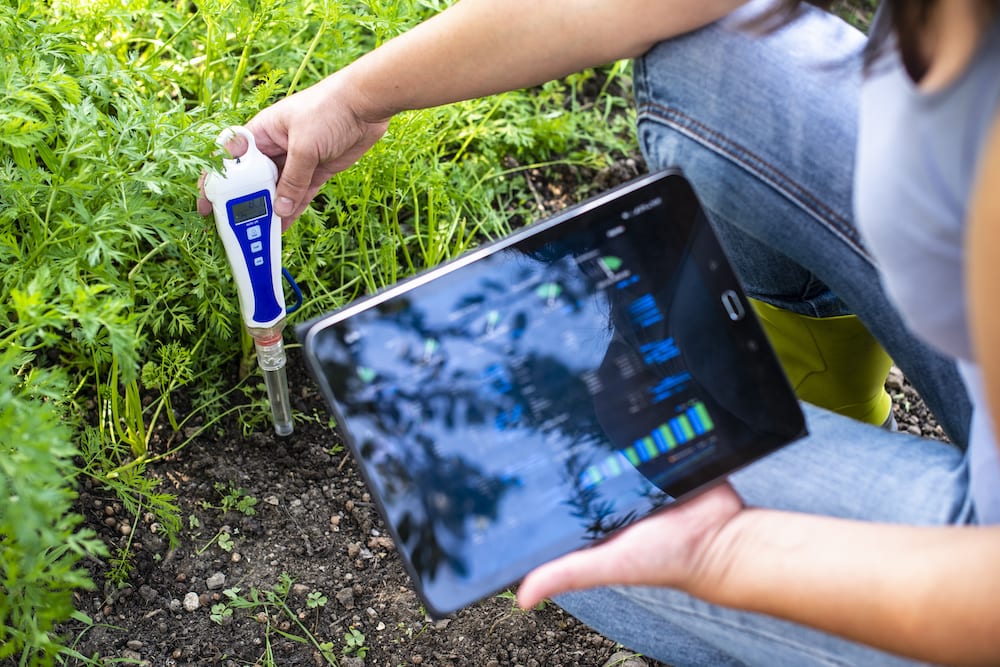- Published Mar 5, 2024
- Last Modified Mar 6, 2024
- 5 min
The Essential Role of pH Meters in Agricultural Sectors
pH meters are pivotal for soil and water management, enhancing crop productivity. Discover more about pH measurement technology with RS.

Agriculture plays a significant role in the Philippine economy, contributing approximately 8.9% to the country's Gross Domestic Product (GDP) in 2022, according to Statista. The sector is diverse, encompassing rice, coconut, sugarcane, and banana production, which are among the top agricultural commodities. Despite its vital role, the sector faces numerous challenges, such as vulnerability to natural disasters, limited access to technology, and issues related to soil health and irrigation.
In this context, the adoption of innovative technologies, such as pH meters, is increasingly becoming crucial. These tools are essential instruments that significantly contribute to agricultural success. By accurately measuring the acidity or alkalinity of soil and water, pH meters play a pivotal role in optimising crop health, yield, and quality, thus ensuring the sustainability and profitability of agriculture in the Philippines.

What is a pH Meter?
A pH meter is an electronic device designed to measure the acidity or alkalinity of a substance, providing precise readings on a pH scale that ranges from 0 to 14. It consists of a probe connected to an electronic meter that displays the pH level. The core of its technology lies in the probe, which contains a sensitive glass electrode that responds to hydrogen ion activity in the solution being tested. This interaction generates a voltage that the meter translates into a pH value, allowing farmers to assess the condition of their soil or water accurately.
When purchasing a pH meter, look for accuracy and durability to ensure reliable measurements, and consider ease of use and calibration features for efficient operation in various agricultural settings.
Types of pH Meters
There are several types of pH meters available, each suited to different applications in agriculture:
- Digital pH Meters: These meters are known for their precise and easy-to-read measurements, making them a popular choice for both field and laboratory use. They are especially suitable for routine monitoring and quality control, providing reliable data with ease.
- Portable pH Meters: Designed for mobility, portable pH meters enable on-site testing, allowing for the direct measurement of soil or water pH right in the field. This capability is invaluable for making immediate crop management decisions and enhancing the efficiency and timeliness of agricultural practices.
- Benchtop pH Meters: Benchtop models provide detailed analysis and high precision. Primarily used in laboratory settings, they are essential for conducting advanced research and comprehensive data analysis. With sophisticated features, these meters meet the demands of thorough investigations and studies of soil and water pH levels.
Applications of pH Meters in Agriculture

1. Managing Irrigation Water with pH Level Testers
The pH level of irrigation water is a critical factor in agriculture, affecting nutrient availability and plant health. Water that is too acidic or alkaline can hinder the absorption of essential nutrients by plants, leading to poor growth and reduced crop yield. pH meters enable farmers to monitor and maintain the optimal pH level for their crops, ensuring efficient use of water and fertilisers and sustainable management of water resources.
For instance, improper pH levels can lead to calcium or magnesium deficiencies, affecting plant development. By employing pH meters to adjust and treat the pH of irrigation water, farmers can prevent these issues, promoting healthier crops and better yields.
2. Balancing Soil pH for Optimal Crop Growth
Soil pH significantly influences crop growth, nutrient uptake, and the activity of soil microorganisms. It determines the chemical form of nutrients in the soil, affecting their availability to plants. With the help of pH meters, farmers can regularly test their soil, making necessary adjustments to create the ideal growing conditions for various crops.
For example, rice, a staple crop in the Philippines, thrives in slightly acidic to neutral soil (pH 6.0-7.0). By maintaining the correct soil pH, farmers can enhance nutrient efficiency, reduce the risk of soil-borne diseases, and ultimately, increase crop productivity.
The Economic Benefits of pH Monitoring in Agriculture
Proper pH management can lead to significant economic benefits for farmers. By optimising the pH levels of soil and water, the need for excessive fertilisers and pesticides is reduced, lowering production costs. Moreover, testing and maintaining optimal pH levels can improve crop yields and quality, translating into better market prices and higher income for farmers. This not only supports the livelihood of individual farmers but also contributes to the overall economic development of the agriculture sector in the Philippines.
Enhancing Crop Yield and Quality With RS’ pH Technology
The importance of pH measurement in agriculture cannot be overstated, with pH meters becoming essential tools for modern farming. By enabling precise monitoring and management of soil and water pH, these devices help ensure optimal growing conditions for crops, leading to improved yield and quality.
Beyond the critical role of pH meters in agriculture, RS offers a wide array of environment test and measurement equipment and technologies designed to further enhance crop yield and quality, from soil moisture meters to pH probes.
As agriculture continues to evolve, the adoption of technologies like pH meters, particularly from RS’ range, is essential for the sustainable growth and profitability of the sector. Farmers and agricultural professionals are encouraged to embrace these tools, leveraging their benefits to secure the future of farming in the Philippines.
Popular Brands for pH Meters
Hanna Instruments
Hanna Instruments delivers a comprehensive selection of pH meters, designed to meet the diverse requirements of agricultural, laboratory, and environmental monitoring. Their products offer accuracy, durability, and ease of use, ensuring optimal pH measurement for any application.
Chauvin Arnoux
Chauvin Arnoux offers a line of pH meters that stand out for their precision engineering and versatility, catering to both educational and professional settings. These meters are designed for users who require reliable, accurate pH measurements, with features that simplify complex analyses.
Endress+Hauser
Endress+Hauser provides advanced pH meter solutions known for their innovative technology and exceptional accuracy. Their pH meters are suited for challenging industrial environments and demanding laboratory work, ensuring precise measurements and process reliability.
Related links
- Chauvin Arnoux Cable for Use with pH Meters
- pH Meters
- Endress+Hauser CM442 pH Meter
- FLIR EC510 pH Meter 0.01pH Resolution 90 °C Max
- FLIR EC600 pH Meter 0.01pH Resolution 100 °C Max
- FLIR RE300 pH Meter
- Hanna Instruments CHECKER1 pH Meter 0.1pH Resolution, 14pH Max
- Hanna Instruments HI-9811-51 pH Meter 0.1pH Resolution +70 °C Max